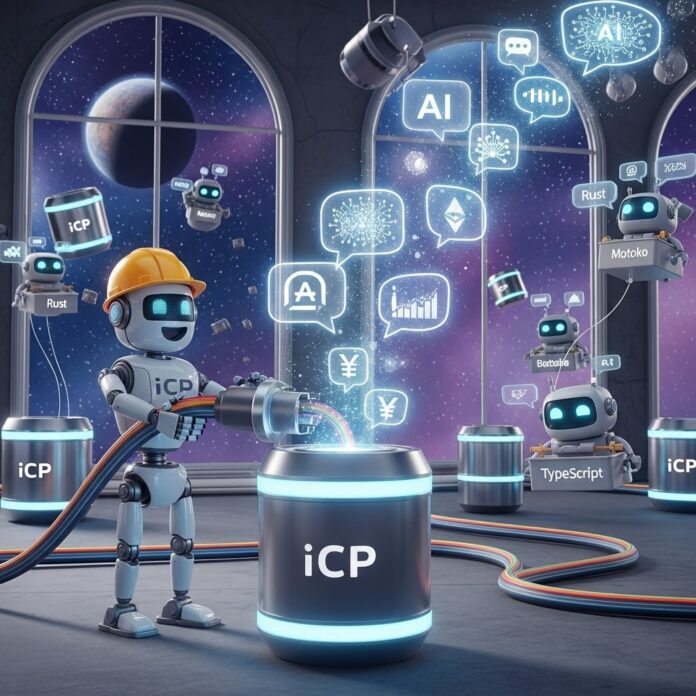Adding artificial intelligence to applications on the Internet Computer has just become a lot easier. The latest update, called Ignition, makes it possible for developers to connect canisters with large language models in a matter of minutes rather than through complex external setups.
The system works by linking smart contracts to off-chain AI workers that handle the heavy lifting. When a canister sends a prompt, the AI worker processes it and delivers a response back in real time. This allows developers to integrate chatbots, analytics tools or even AI-powered financial applications without having to manage additional infrastructure.
To support quick adoption, new libraries are available in Motoko, Rust and TypeScript, three of the main languages used on the Internet Computer. Example projects and live demonstrations are already online, giving developers the chance to experiment, copy code and adjust it for their own purposes.
The initial rollout of AI workers includes models such as Llama 3.1 8B, Llama 4 Scout and Qwen 3 32B. While this is an early prototype stage, the service already allows for fast experimentation. There are usage caps in place—such as limits on the number of messages, prompt size and token output—but the aim is to provide a smooth entry point for those looking to test AI features inside decentralised applications.
Developers have been encouraged to combine AI functionality with other elements already available on the network, including integrations with Bitcoin, Ethereum and Solana. This opens the door to new kinds of applications that can operate across blockchains while tapping into AI-driven logic.
Privacy and scalability remain areas to watch. Although prompts are not tied back to individual users, there is ongoing discussion about ensuring stronger guarantees, possibly through technologies such as trusted execution environments. For now, the feature is free to use while testing continues.
The bigger picture is a gradual move towards AI agents that can operate as autonomous components within decentralised apps. By bringing large language models closer to canister smart contracts, the Internet Computer is attempting to make it easier for developers to experiment and build without leaving the network.
It may be early days, but Ignition signals a practical shift. Instead of treating AI as something that sits far outside the blockchain environment, it can now be tapped directly within dApps. For developers, the attraction is clear: fewer hurdles, faster integration and the chance to explore how artificial intelligence can change the way decentralised applications are built and used.
Dear Reader,
Ledger Life is an independent platform dedicated to covering the Internet Computer (ICP) ecosystem and beyond. We focus on real stories, builder updates, project launches, and the quiet innovations that often get missed.
We’re not backed by sponsors. We rely on readers like you.
If you find value in what we publish—whether it’s deep dives into dApps, explainers on decentralised tech, or just keeping track of what’s moving in Web3—please consider making a donation. It helps us cover costs, stay consistent, and remain truly independent.
Your support goes a long way.
🧠 ICP Principal: ins6i-d53ug-zxmgh-qvum3-r3pvl-ufcvu-bdyon-ovzdy-d26k3-lgq2v-3qe
🧾 ICP Address: f8deb966878f8b83204b251d5d799e0345ea72b8e62e8cf9da8d8830e1b3b05f
🪙 BTC Wallet: bc1pp5kuez9r2atdmrp4jmu6fxersny4uhnaxyrxau4dg7365je8sy2q9zff6p
Every contribution helps keep the lights on, the stories flowing, and the crypto clutter out.
Thank you for reading, sharing, and being part of this experiment in decentralised media.
—Team Ledger Life


